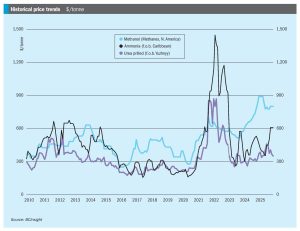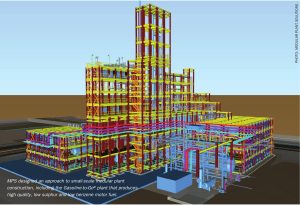
Methanol Reformer to supply MGC with methanol reformer for Niigata plant
Spain’s Methanol Reformer has signed a sales and purchase agreement with Mitsubishi Gas Chemical Company, Inc. (MGC) for the supply of an L18 methanol reformer compliant with Japanese industry requirements. The system will be delivered and installed at MGC’s Niigata plant, with commissioning planned for the second half of 2026. Methanol Reformer says that this, their first industrial project in Japan, reinforces the company’s presence in the Asian market, while for MGC, the collaboration supports the adoption of innovative hydrogen-generation solutions designed to enhance operational applicability and efficiency with reliability.






